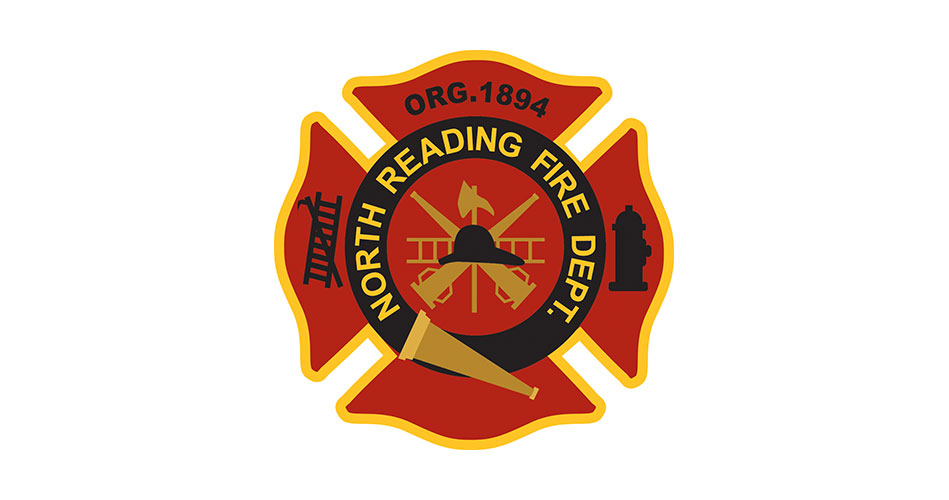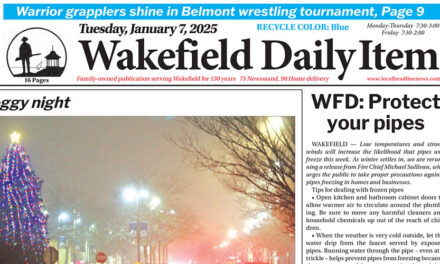By MAUREEN DOHERTY
NORTH READING — The story of the week is the ever-present smoke from countless brush fires throughout the state, which has affected North Reading as a large brush fire in Middleton over the weekend cross the town line on the eastern end of town.
The North Reading Fire Department has been fully involved in this fire-fighting effort over several days, which has included directing a Massachusetts National Guard helicopter to drop water on the fire in the woods in town. No structures in town have been affected to date.
The fires have greatly affected air quality in town and town officials released the following advisory on Tuesday:
Call 911 if you see a fire to report its exact location
The North Reading Fire Department, working with the Middleton Fire Department, the Massachusetts Department of Conservation and Recreation, and the Massachusetts Department of Fire Services, continues responding to a brush fire along the North Reading/Middleton town line. The Wilmington Fire Department assisted in North Reading Tuesday.
Fire officials advised that residents would continue to both see and smell smoke in town.
“Our school leaders and facilities team have made adjustments to our HVAC systems to mitigate air quality concerns and have made decisions about limiting outdoor activities, including elementary recess,” Superintendent Dr. Patrick Daly said in a statement Tuesday. “At the secondary level coaches and advisers are aware of the concerns, potential health risks, and additional precautions that can be taken and will use their discretion to provide students with a safe environment for extra-curricular activities.”
Daly added, “Information about changes to specific activities will be communicated at the school level and questions may be addressed to the building principals.”
The North Reading Health Department reminds residents that wildfire smoke can pose health risks.
People with the highest risk include: children under age 5, seniors, pregnant women, people with disabilities, people with pre-existing medical conditions such as heart disease, asthma, lung diseases and respiratory allergies; and people who work or exercise outdoors.
Steps you can take to protect yourself from the smoke include:
• Talking to your doctor about using asthma medications during a wildfire smoke event
• Staying up to date on local air quality information and air quality alerts in your community: https://www.airnow.gov/
• Planning to move outdoor activities indoors during wildfire smoke events
• Closing windows and vents in homes and vehicles during wildfire smoke events
• Using high-efficiency (HEPA) air filters in heating and cooling systems
• Learning how to create a clean air room in your home using a box fan: https://www.epa.gov/air-research/research-diy-air-cleaners-reduce-wildfi…
• Have a supply of N95 masks, learn how to use them and practice having your child wear small N95 or surgical masks. Masks are available from the Health Department.





